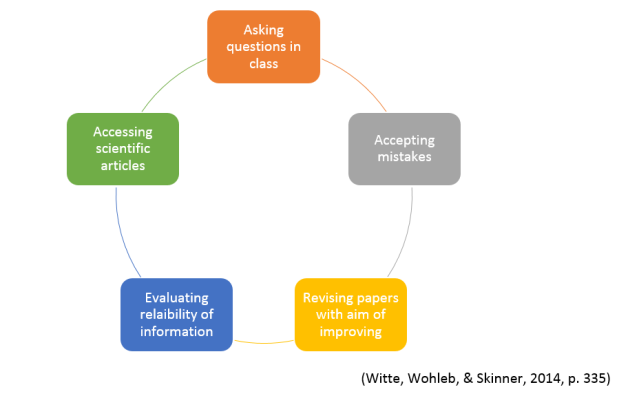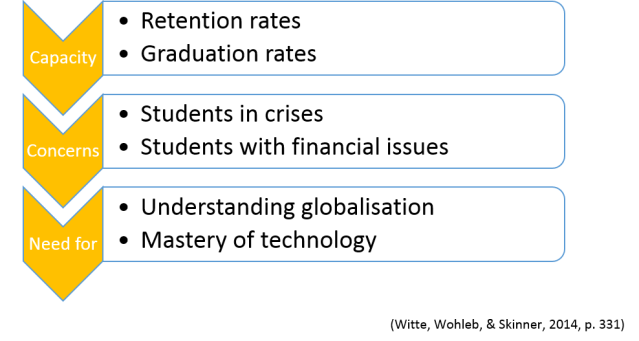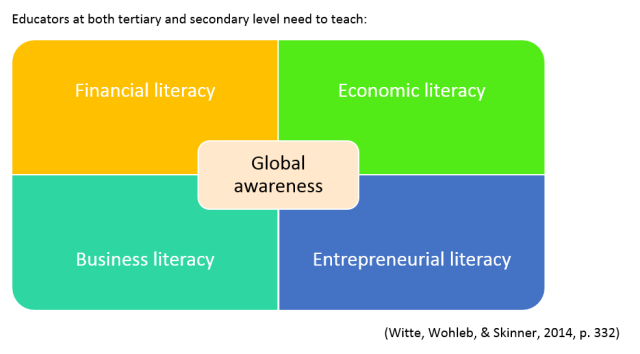Building Education and Technology Competencies for a Changing Society
This post is prompted by the need to master the chapter of the same name in (Wang, 2014, pp. 331-342) written by three women working at Auburn University in the United States (Witte, Wohleb, & Skinner, 2014). Whilst American in focus, the material embodies a high level of relevance for Australian K-12 and tertiary education.
American college students’ success is being challenged by 3 factors:
 These factors are reflected in 3 trends:
These factors are reflected in 3 trends:
To assist this, K-12 educators need to incorporate the everyday use of technology into classrooms to maximise good habits that will assist with lifelong learning. Demonstrated to have a positive effect on tertiary students are these 5 habits:

Educators at both tertiary and secondary level need to teach 5 skills:
Competent tertiary students need to be:
- Internationalist
- Adaptable(Witte, Wohleb, & Skinner, 2014, p. 332)
And they need to graduate with the following 12 skills:
(Witte, Wohleb, & Skinner, 2014, p. 336)
These skills can be developed by K-12 teachers incorporating the following tools into their lesson design:
- Web-based programs
- Learning Management Systems
- Virtual Chat Rooms
- Web-cams
- Skype or FaceTime (Witte, Wohleb, & Skinner, 2014, p. 332).
Technology tools should be capable of assisting teachers to instruct, monitor and assess within a learning environment that is both engaging and motivating for their students (Witte, Wohleb, & Skinner, 2014, p. 333).
The processes that result from such a scenario should be more
- Individualised
- Differentiated
- Specialised
- Dynamic(Witte, Wohleb, & Skinner, 2014, p. 333).
In all cases the aim should be to reflect the positivity relating to technical incorporation, and such action should be linked to learning, as using appropriate tools is the critical link to student success (Witte, Wohleb, & Skinner, 2014, p. 335).
References
Wang, V. (. (2014). Handbook of research on education and technology in a changing society. IGI Global. London: IGI Global.
Witte, M. M., Wohleb, E., & Skinner, L. (2014). Building Education and Technology Competencies for a Changing Society. In V. (. Wang, Handbook of Research on Education and Technology in a Changing Society (pp. 331-342). IGI Global.




This is an interesting chapter with lots of food for thought. It supports the idea that educators need to be intentional in their use of technology and that it should be embedded in our practice.
I think that educators can use technology to help us to upskill as well. I see a lot of great ideas on Pinterest and Blogs that inspire me to make changes in my practice. We are not alone!
Thanks for a great summary of a really interesting chapter!
LikeLike
Thanks Kelly. I think anyone taking our course is already networked and understands the importance of digital environments. As a sole TL in my school, my PLN has become my lifeline. We certainly can learn so much from each other.
LikeLike